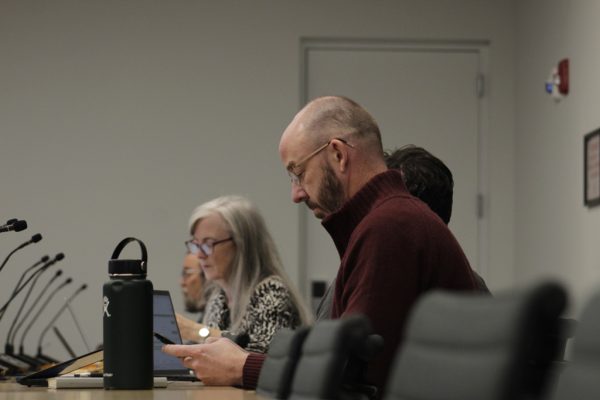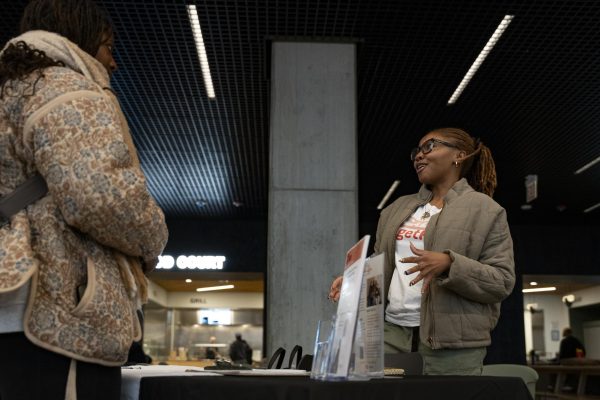NATO secretary general speaks to young leaders
May 19, 2012
NATO Secretary General Anders Fogh Rasmussen discussed key points that will be touched on at the NATO summit with a crowd of future leaders at the Young Atlanticist Summit on Saturday.
Rasmussen honed in on three main topics including NATO’s future involvement with Afghanistan, prospective responsibilities for the organization and partnerships with other non-NATO countries.
“Our goal is to make sure that Afghanistan will never be a safe-haven for terrorists again,” Rasmussen said, emphasizing the positive progress the country has made. “With our help, Afghan forces are already in the lead for providing forces for half the country’s population, and they’re growing more capable and confident day by day.”
He added that three-quarters of the Afghan population will soon be relying on their own security forces. While Rasmussen expects more independent stability in the country, he said external security forces will still be present, playing more of a supporting role rather than a combative one. Their new mission will be to train and strengthen Afghan forces.
According to Rasmussen, Afghanistan has promised to “preserve freedom, democracy, the rule of law and fundamental human rights,” including women’s rights, stating that their role is “crucial” in maintaining the country.
Regarding the future of NATO, the secretary general said struggling economies has been a battle for the organization but the solution is “smart defense,” or a cheaper, more efficient way of to operate military forces.
“[Smart defense] means setting priorities for what we should spend our defense dollars and euros on,” he said. “It means specializing in what nations do best, and it means working more closely together to provide capabilities that no single nation can afford.”
Lastly, Rasmussen said NATO will strive to strengthen relationships with countries around the world, specifically those that are not members of NATO but are supporters. With 60 countries attending the summit, according to him, the 2012 conference is the largest in NATO’s history.
Rasmussen added that 22 countries joined the 28 allied countries in the fight to strengthen Afghanistan and noted NATO’s prominence.
“NATO is the security partner of choice for many countries across the globe,” he said. “[It] remains unmatched in its ability to deter potential military threats and to deploy forces to mange crisis.”
After his speech at the Hotel Sax, 333 N. Dearborn St., Rasmussen took questions from the delegates. A representative from Afghanistan asked Rasmussen to define the NATO and Afghanistan’s enemy, to which his response was the Taliban. However, he pointed out that there has been a 20 percent decline in attacks initiated by enemies compared to the same period last year.
To further Rasmussen’s response, president of the Atlantic Council Frederick Kempe, who moderated the Question-and-answer session, inquired about negotiations with the Taliban. Rasmussen said he was unsure if the terrorist group is ready to negotiate, but regardless, deliberations must be initiated by the Afghan government.
“I don’t know whether the Taliban leadership is prepared to negotiate a solution,” Rasmussen said. “Maybe not, but I think we should give it a try, provided certain provisions are fulfilled… [However,] the Afghan government must be in the driver’s seat.”
Tamim Asey, representative of Afghanistan said he felt as if NATO has the right to initiate a conversation with the Taliban and should do so, rather than just the Afghan government. But he added that he is hopeful for the future of the country, if the correct actions are taken.
“I think if we take the right measures for Afghanistan, political, military and economic, then we will have a stable and secure country,” Asey said. “Otherwise, there is a chance that we go back to the eras of the 1990s where there was a civil war.”






